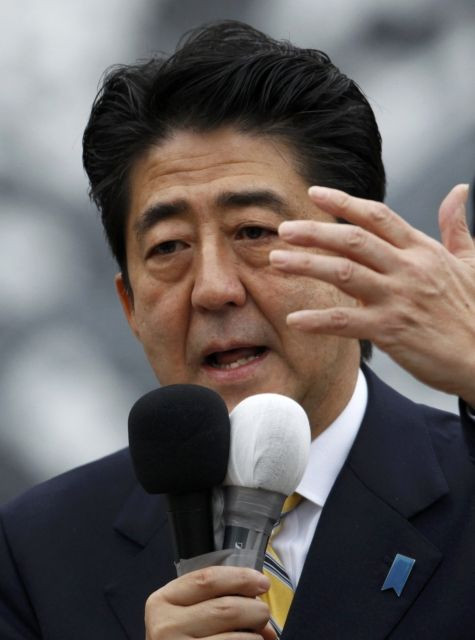US Trying To Help Japan, South Korea Mend Ties

A high-level Washington delegation departed for South Korea and Japan Monday to lend a hand in mending the strained ties between the two U.S. allies that have hurt security cooperation in Asia-Pacific region.
The visit closely follows the inauguration of a nationalist government in Japan headed by Shinzo Abe and a presidential election in South Korea that chose Park Geun-hye of the conservative Saenuri party as the country’s first woman president.
The ties between the two northeast Asian nations deteriorated last year after outgoing South Korean President Lee Myung-Bak made a visit — the first official visit by an incumbent South Korean president — to a tiny disputed set of islands known as Dokdo in Korea and Takeshima in Japan.
The visit rekindled historical animosities stemming from Japan’s 1910-45 occupation of Korea during which Korean women were forced to serve as sex slaves for Japanese soldiers.
Though South Korea’s incoming leader, Park Geun-hye , has called for “reconciliation and cooperation” and a spokesman for Abe has said South Korea is Japan’s “most important neighbor,” the diplomatic exchanges between the two nations continue to be bogged down by sensitive issues, primarily Japan’s apology to Korea’s so-called “comfort women.”
There were believed to be around 200,000 "comfort women," mostly Koreans abused by the Japanese troops during World War II. Many have since passed away, but those still alive have formed a non-governmental organization called "Korean Council for the Women Drafted for Military Sexual Slavery by Japan," which has been fighting for an apology from the Japanese.
Though some former Japanese prime ministers have personally apologized, the organization says mere verbal apology was not enough and that Japan should adopt a resolution and provide legal compensation to the women subjected to mistreatment.
Koro Bessho, the Japanese ambassador in Seoul, said Tuesday that he was "optimistic" about the possibility of improving the strained relations with South Korea, Seoul’s Yonhap News Agency reported.
“I obviously think that we are in a better position to talk about it after the new administration is introduced in Korea, because it is really important for the two leaders — Madam Park Geun-hye and Prime Minister Shinzo Abe — to try to iron out our relationship," Bessho told a forum in Seoul.
He defended Abe’s administration reviewing its national military strategy to increase the nation’s military spending for the first time in a decade.
In the past, Abe campaigned for revising the 1993 apology by Japan's then Chief Cabinet Secretary Yohei Kono that acknowledged the Japanese military's role in capturing and forcing tens of thousands of women into sexual slavery for Japanese soldiers.
In March 2007, Abe expressed doubts about the Kono statement, saying that there was "no proof" of coercion on Korean women.
Though Abe said he honored the Kono statement, his remarks prompted moves in the U.S. House to expedite the adoption of a pending resolution, calling on the Japanese government to apologize for the abuse of the Korean women.
Kurt Campbell, the top U.S. diplomat for East Asia, said last week that a key reason for the Washington delegation’s visit was to ensure both governments were committed to “rebuilding” their ties.
“After a period of very substantial warming between Japan and South Korea, there have been tensions over the course of the last year or so that undermined the quality of the relationship,” Campbell said while speaking at a forum in Washington.
© Copyright IBTimes 2024. All rights reserved.





















